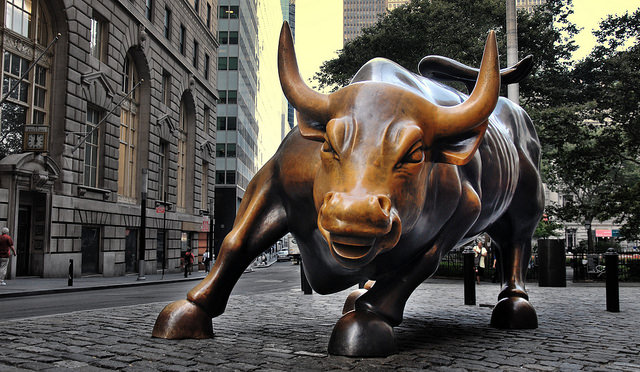Banks need to be socialized and democratically controlled by the public despite critics claiming the banks need to be broken up. Reforms and limited legislation such as Dodd-Frank are not enough. The public needs to control the bank and citizens must rethink the fundamental nature of productivity and the role of banks in an increasingly globalized world.
Too big to fail
Economist Nuno Teles writes in an article in Jacobin Magazine about how society should socialize the banks. Banks have caused massive instability in the global economy and their decisions created the 2008 recession. According to Teles, “It wasn’t subprime market defaults that unleashed the destructive financial turmoil of 2007-08, but their ruinous impact on a major investment bank, Lehman Brothers.”
The Occupy Wall Street Movement has called for the breaking of the banks that are “too big to fail,” but limited reforms will do nothing to change a corrupted system. No mechanism prevents banks from repeating their old practices for short-term profits. Teles notes Dodd-Frank and the Bank of International Settlements Basel III regulation “all raised capital and liquidity requirements and produced new resolutions mechanisms for banks” but were ultimately shot down by an intense lobbying efforts on behalf of the banks.
The Occupy movement was a result of massive wealth inequality and economic marginalization caused by neoliberal policies and corporate greed. These problems were not new but manifested into a movement because an increasing amount of different people were affected. People of color have been historically marginalized by unfettered capitalism, but young college-educated individuals from white middle-class backgrounds have been included for the first time. In 2014, banks made $35 billion on overdraft fees alone. This means banks charged people for having insufficient funds in their account. This is just one of many incomes of the rentier class.
bank deregulation
The public must control the banks because they have been instrumental in creating instability. HSBC laundered money for Mexican drug cartels and American banks have used racial discrimination to push high-interest subprime mortgages on various communities of color. These are the symptoms of bank deregulation that were facilitated when the Glass-Steagall Act was repealed under the Clinton administration. It is too simple and inappropriate to try to apply morality to banks. Banks do not know that word.
According to The Guardian, the “62 richest billionaires own as much as wealth as the poorest half of the world’s population.” The economist Michael Hudson claims the rise of a rentier class and the accumulation of wealth by the financial elite has fostered a fallacious notion that the economy is growing. According to Hudson, “The wealth of the 1 percent is obtained by essentially lending money to the 99 percent and then changing interest on it and recycling the interest at a exponentially growing rate.”
Banks are fundamentally important institutions because they provide credit, which is essential for any economy. Citizens must analyze the nature of the credit and the relationship between the bank and the borrower. In a time of neoliberalism, societies should reconsider their relationship with their respective financial institutions.







